Description
ABSTRACT
Issues and Problems in Corporate Governance in Nigeria
Professor Joseph Abugu*
The paper examines several issues and problems of corporate governance in Nigeria, particularly in the context of the Companies and Allied Matters Act. It posits that in the classical approach to corporate governance, the Act and the surrounding case law principles delineated the powers of governance among the two primary organs of corporate administration i.e. the Board of Directors and the members in general meeting, and the exaction of duties from directors. However, these rules are often inadequate and permissive of ingenious devices subverting the good intentions of their common law formulators. Directors have been known to pursue personal goals and misappropriate corporate funds.
It attributes corporate governance abuses to shareholders’ apathy in enforcing directors’ duties and submits that the Rule in Percival v Wright does not bind the Nigerian courts. The paper declares that there is no rule of law therefore which restrains Nigerian courts from holding directors owe fiduciary duties to their shareholders with regard to the management of the affairs of the company.
The paper explores several corporate governance provisions of the CAMA and considers their relevance and effect in the pursuit of good governance in Nigerian companies. It questions the division of powers under the Act; it challenges the relevance of stakeholder theories in Nigeria, being anchored on a marked separation between ownership and control; it questions the non-mandatory status of code of corporate governance prescriptions and prefers a statutory mandatory compliance by all companies. It expounds the classical view that the stockholders own the corporation and as such, managers should govern only in their interest and maximize stockholder value; it submits that a political culture of corruption, bribery and ethnic favouritism are vices to good corporate governance in Nigeria.
INTRODUCTION
Corporate Governance generally refers to the way companies are governed. The Cadbury Committee in its Report on the Financial Aspects of Corporate Governance1 defined corporate governance as ‘the system by which companies are directed and controlled.’ Definitions are as varied in scope as the context and intent of the definer. A narrow definition is provided by Professors Shleifer and Vishney who state that corporate governance is concerned with the ‘ways in which suppliers of finance assure themselves of getting a return on their investment,’2 whilst a broader view is seen in the definition of Monks and Minow that corporate governance is:
…the relationship among various participants in determining the direction and performance of corporations. The primary participants are (1) the shareholders (2) the management (led by the
* LL.B, LL.M, Ph.D. Professor of Commercial & Industrial Law, Faculty of Law, University of Lagos, Akoka
- Committee on the Financial Aspects of Corporate Governance (chaired by Sir Adrian Cadbury), Report 1992 at paragraph 2.5
- A Shleifer and R. W. Vishney, A. Survey of Corporate Governance, National Bureau of Economic Research Working Paper No 5554, 1996, quoted in Ian M. Ramsey, Corporate Governance and the duties of Company Directors, Page 2

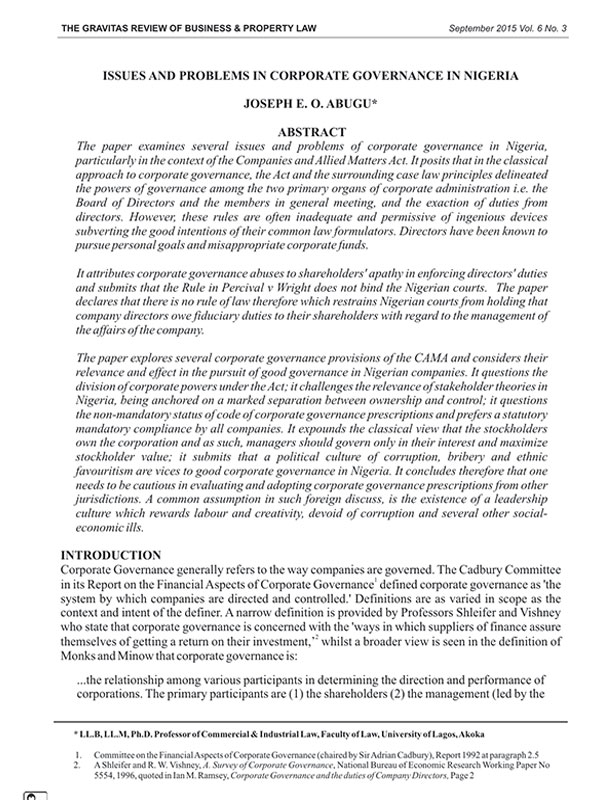
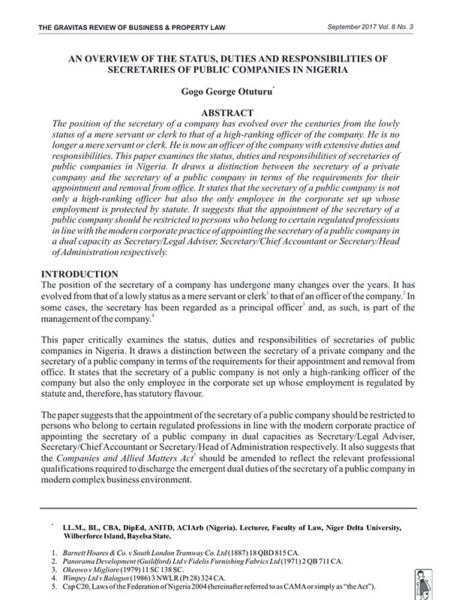
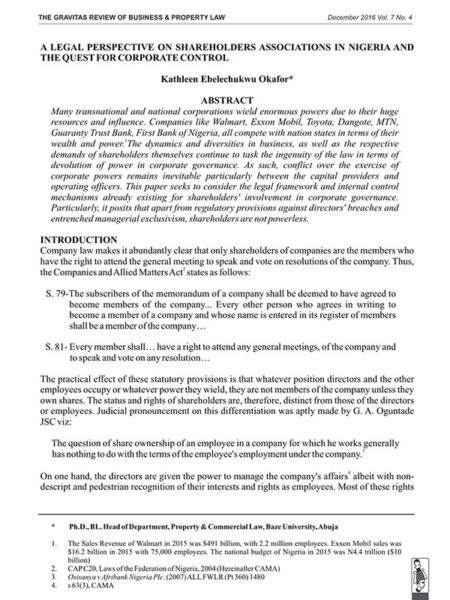
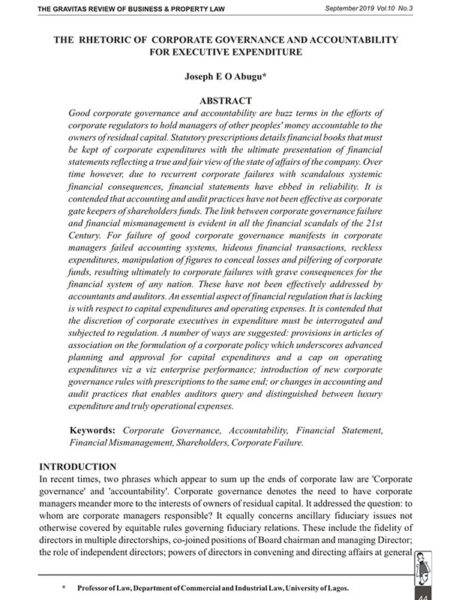
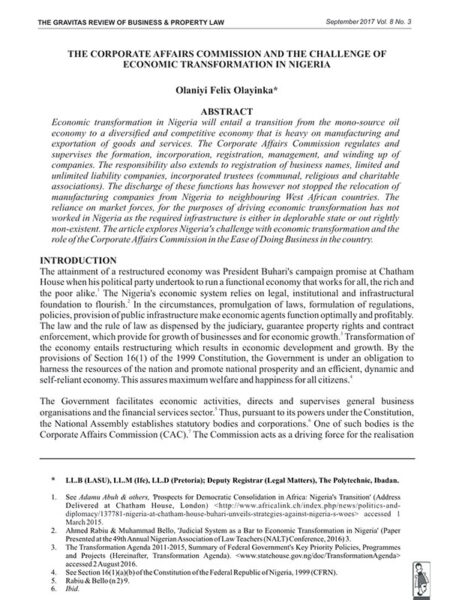


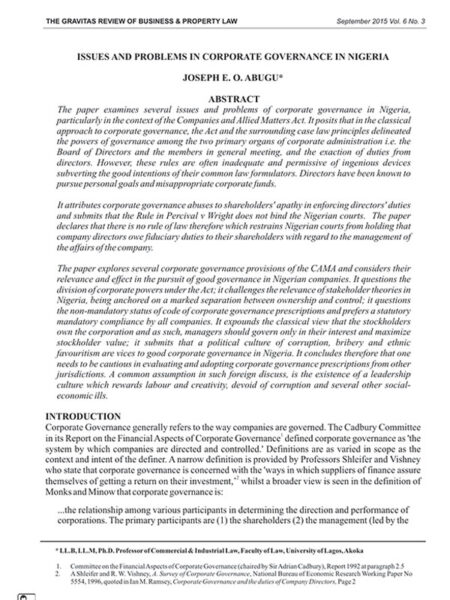
Reviews
There are no reviews yet.